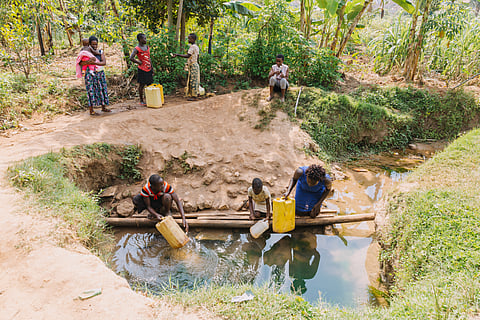

As COP30 opens in Belém, UN Women urges adoption of a strong, well-funded Gender Action Plan (GAP).
The agency warns failure to act could roll back gender equality and human rights in climate policy.
New UN Women–Kaschak Institute scorecard reveals major global gaps in gender-responsive climate action.
Ten countries show leadership in integrating gender into climate plans; six make no commitments at all.
Women’s health, unpaid care work, and gender-based violence remain the most neglected areas.
As 30th Conference of Parties (COP30) to the United Nations Framework Convention on Climate Change opens in Belém, Brazil, UN Women has called on world leaders to adopt a “transformative, well-funded, and accountable” Gender Action Plan (GAP) to ensure gender equality remains a central pillar of global climate action. The agency warned that the decisions taken at this year’s UN climate summit will determine whether women’s rights and leadership stay at the heart or slip to the margins of the UN climate process for the next decade.
“Failure to adopt a robust GAP would set back gender equality and human rights, undermining hard-won progress and signalling that women’s leadership and experience are expendable in the climate fight,” Sarah Hendriks, director of UN Women’s Policy, Programme and Intergovernmental Division, said in a statement.
The first GAP, adopted in 2017, helped embed gender considerations into the UN climate framework, influencing policies on mitigation, adaptation, finance and technology. But with climate impacts deepening and inequalities widening, UN Women warned that a renewed, better-resourced plan is critical.
Climate change is not gender neutral. Women and marginalised groups face disproportionate risks from displacement, food insecurity and loss of livelihoods, yet remain underrepresented in decision-making. UN Women said that addressing these imbalances is not only a matter of justice but also essential to the effectiveness of climate action.
At COP30, the agency is urging countries to back a GAP that:
addresses the root causes of gender inequality and climate vulnerability grounded in the principles of accountability and implementation
is adequately resourced
protects and promotes the rights of women and girls in all their diversity
and upholds human rights and civic space, recognizing the leadership of women environmental human rights defenders as essential to climate justice.
“The adoption of a strong GAP at COP30 will be a defining moment of global commitment to gender equality and the integrity of the UNFCCC as a platform for inclusive and rights-based multilateral climate governance,” Hendriks said.
Alongside the negotiations, UN Women and the Kaschak Institute for Social Justice for Women and Girls have launched the Gender Equality and Climate Policy Scorecard, a first-of-its-kind tool assessing how countries address gender inequalities in their national climate plans under the Paris Agreement.
Analysing 32 Nationally Determined Contributions (NDC), the scorecard evaluates progress across six dimensions: Economic security, unpaid care work, health, gender-based violence, participation and leadership, and gender mainstreaming. While most countries recognise women’s heightened vulnerability to climate change, the findings show fewer acknowledge their contributions or take comprehensive approaches to closing gender gaps.
Ten countries across five regions were identified as frontrunners, with policy commitments in five or six areas. Sixteen countries were rated as moderately comprehensive or limited in their approach, and six made no gender-responsive commitments at all. Economic security emerged as the most common focus, while women’s health, unpaid care work, and gender-based violence received far less attention.
The scorecard’s findings will be discussed at the UN Women's COP30 side event, Gender-Responsive Climate Action: Unleashing and Accelerating Implementation of the Paris Agreement. It will be hosted with the Government of Liberia and the Kaschak Institute on November 20, 2025.